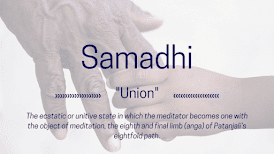Matthew 5: 1-12 [The Beatitudes]
When Jesus saw the crowds, he went up the mountain; and after he sat down, his disciples came to him. Then he began to speak, and taught them, saying: “Blessed are the poor in spirit, for theirs is the kingdom of heaven. Blessed are those who mourn, for they will be comforted. Blessed are the meek, for they will inherit the earth. Blessed are those who hunger and thirst for righteousness, for they will be filled. Blessed are the merciful, for they will receive mercy. Blessed are the pure in heart, for they will see God. Blessed are the peacemakers, for they will be called children of God. Blessed are those who are persecuted for righteousness’ sake, for theirs is the kingdom of heaven. Blessed are you when people revile you and persecute you and utter all kinds of evil against you falsely on my account. Rejoice and be glad, for your reward is great in heaven, for in the same way they persecuted the prophets who were before you.”
The Heart Sutras
The Bodhisattva [a person on the path to Buddhahood] of
Compassion,
When he meditated deeply,
Saw the emptiness of all five skandhas [five aggregates: form, feelings,
thoughts, choice, and consciousness]
And sundered the bonds that caused him suffering.
Here then, Form is no other than emptiness,
Emptiness no other than form.
Form is only emptiness,
Emptiness only form.
Feeling, thought, and choice, consciousness itself,
Are the same as this.
All things are by nature void
They are not born or destroyed
Nor are they stained or pure
Nor do they wax or wane So, in emptiness, no form,
No feeling, thought, or choice,
Nor is there consciousness.
No eye, ear, nose, tongue, body, mind;
No color, sound, smell, taste, touch,
Or what the mind takes hold of,
Nor even act of sensing.
No ignorance or end of it,
Nor all that comes of ignorance;
No withering, no death,
No end of them.
Nor is there pain, or cause of pain,
Or cease in pain, or noble path
To lead from pain;
Not even wisdom to attain!
Attainment too is emptiness.
So know that the Bodhisattva [enlightened being]
Holding to nothing whatever,
But dwelling in Prajna [best knowledge] wisdom,
Is freed of delusive hindrance,
Rid of the fear bred by it,
And reaches clearest Nirvana [liberation].
All Buddhas of past and present,
Buddhas of future time,
Using this Prajna wisdom,
Come to full and perfect vision.
Hear then the great dharani [intelligible phrases],
The radiant peerless mantra,
The Prajnaparamita [the Perfection of (Transcendent) Wisdom]
Whose words allay all pain;
Hear and believe its truth!
Gate Gate Paragate Parasamgate Bodhi Svaha
Gate Gate Paragate Parasamgate Bodhi Svaha
Gate Gate Paragate Parasamgate Bodhi Svaha
[Gone Gone, Gone Beyond, Gone Ultimately Beyond, Alleluia!]
My puppy of thirteen years died this week. Pru was a quandary of opposites. She could be wild of spirit, yet obedient to a fault. Ill of body yet an active hiking companion to the end. Gentle as a mom with her favorite toys yet rip to shreds all the others. In the end she was the best puppy, okay dog, anyone could every hope to have.
We all are a quandary of opposites. Sometimes we feel happy, other times sad. Sometimes our stomach can be anxious out of fear and other times out of happy excitement, sometimes both at the same time. This week I find myself both remembering Pru’s happy times and the not so happy. The truth is if I try to put aside the sad it doesn’t really go away. It just gets buried deep only to come out later and in an unexpected way. For our own health it is best to recognize the good and the bad; feel all the feels. Perhaps even name the sensations in our body so that when we experience them again later, we are better able to steady ourselves. So often we push negative emotions aside and when they come up, we don’t recognize their origin.
I think Jesus and the Bodhisattva recognized this healthy need to recognize the opposites. Both passages above share this in common. Although different they both dwell in the good and the bad existing at the same time. They both speak to the experience after worldly death, although different in message both speak of the afterlife with joy. So, take care of yourself, welcome pain, greet it with love. My pain mantra, borrowed from Thich Nhat Hanh is “Hello little pain, how can I help you?” My meditation practice of iRest incorporates these ideas of opposites and bodily sensations. My life is forever changed by this week’s events, but through greeting the pain with love, holding on to the good and the bad, I will move through.





